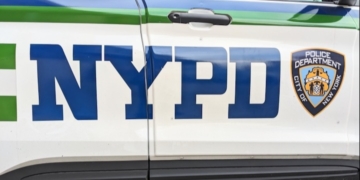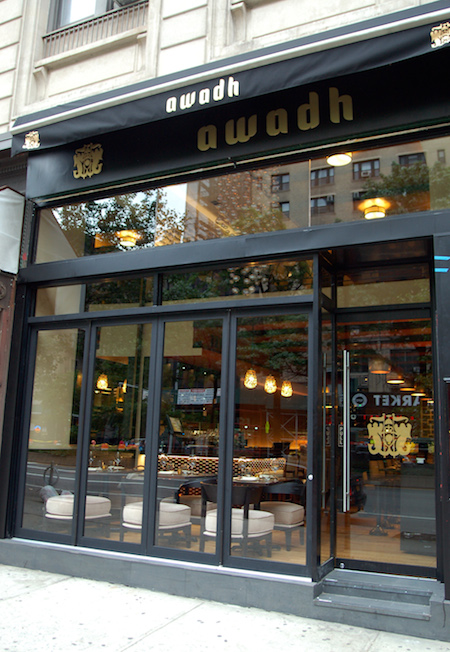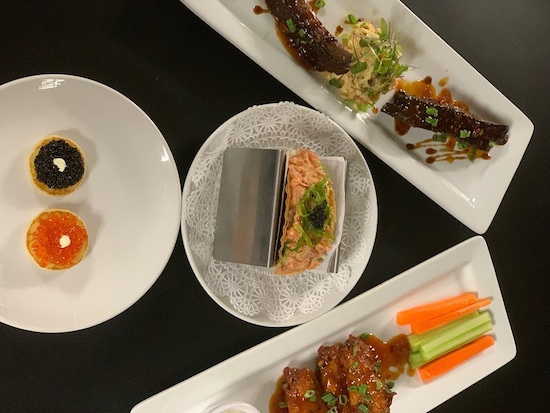By A. Campbell
KIPP, a national charter school network known for strong student achievement, was given permission by a state board to open a middle school in District 3, which includes the Upper West Side and West Harlem. The school will serve students in 5th to 8th grade, and be called KIPP Beyond Charter, but it’s not yet clear where in the district it will be located.
 The decision comes after a passionate hearing last week held at PS/IS 76 on West 121st Street, which focused on whether a State University of New York board should approve KIPP and two other charter schools applying for new locations in Upper Manhattan.
The decision comes after a passionate hearing last week held at PS/IS 76 on West 121st Street, which focused on whether a State University of New York board should approve KIPP and two other charter schools applying for new locations in Upper Manhattan.
Members of Community Education Council District 3 (CEC 3), a parent group that’s similar to a school board but with fewer powers, opposed the school, starting a petition that got over 500 signatures. In a letter to Board of Trustees Member and Chairman of the Charter School Committee at SUNY Joseph Belluck, members of CEC 3 argued that approval of KIPP’s application will “directly undermine two initiatives recently approved by CEC 3…to provide equitable educational opportunities in our district: District 3’s Middle School Plan and the New York City Department of Education’s (“NY DOE”) Harlem/EL Barrio Visioning Project.” It will be the twelfth charter school housed in District 3, they said.
According to Joe Negron, KIPP’s Managing Director of middle schools, there are several reasons KIPP wants to move in. District 3 has the most segregated schools out of all 32 New York City public school districts. Negron said District 3 maintains the largest gap in performance between economically advantaged and disadvantaged students, and that it has the highest percentage of public middle schools that apply some sort of screening to prospective students before granting admission. The screenings generally focus on a prospective student’s standardized test scores, attendance record and behavioral history, among other factors.
“We feel like we are providing an option that families want and that this district doesn’t currently offer,” Negron said. “A middle school that is academically rigorous and is unscreened – that option does not exist.”
Representatives from CEC 3 strongly disagreed. Kimberly Watkins, President of CEC 3, noted that 25 percent of all of the city’s charter schools are located in the northern part of Manhattan. Watkins said that in District 3 alone, families already have 22 options of where they want to send their children to school. “Why would responsible educational leaders make decisions like that,” she asked. “Because this is about politics. It’s about money.”
While charter school leadership and staff members at the hearing cited their record of high-quality education, low attrition rates, and integrated classrooms, public school teachers and parents noted the lack of oversight from SUNY as well as a dearth of services for students with special education needs. Some people at the hearing debated whether charter schools too often “counseled out” students who do not meet certain academic or behavioral standards. Traditional public school advocates noted that students who are counseled out often end up having to change schools mid-semester, leaving their parents to scramble while trying to find space for them elsewhere.
Representatives from KIPP asked that people refrain from painting all charter schools with a broad brush and reiterated that they would not resort to counseling out students. “We have a policy of trying our very best to hold to as many students who start with us as we can,” said Vicki Zubovic, Chief of External Affairs at KIPP. “I can tell you that our attrition rates are among the lowest, if not the lowest, in the city. It’s drilled into everyone at KIPP that if a parent is unhappy, you have to do everything you can to make sure the needs of the family are being addressed.”
“We feel like we’re being a compliment to [the Community Education Council’s] efforts and to be portrayed as anything else is just confusing to me,” Negron added. “The thing that ultimately aligns us is that we all want great things for the kids in this district. We truly want to work together with everyone in the community, and we have been doing that and will continue to do so.”









“We feel like we’re being a compliment to [the Community Education Council’s] efforts and to be portrayed as anything else is just confusing to me,” Negron added. “The thing that ultimately aligns us is that we all want great things for the kids in this district. We truly want to work together with everyone in the community, and we have been doing that and will continue to do so.”
Given that 7 elected officials wrote letters against a new KIPP Middle School and a petition garnered over 500 signatures in a matter of days, it does not appear that the community actually thinks that KIPP is an asset. Nevermind, Negron and his cronies can just circumvent the neighborhood and democracy and appeal to the rubber-stamp SUNY Charter Commission (a panel consisting of 4 non-educators and 1 private school educator) for access to our tax dollars. Then, Negron plays dumb and claims, “we all want great things for the kids in this district,” as if his statement is believable.
I cannot think of any other area of government where a privately managed company can present a half-baked proposal for taxpayer money and get approval without scrutiny. WSR writes, “Representatives from KIPP asked that people refrain from painting all charter schools with a broad brush”. Hmmm…KIPP has shown itself to be as rapacious and corrupt as Success Academy, so if the shoe fits…
Beth unfortunately overlooks District 3’s utterly dismal performance in providing an adequate education to low income and minority students. KIPP is a national organization with a long history of getting historically disadvantaged students into, and through, college. To compare it to Success is wildly inaccurate and nothing more than a smear. All kids deserve a chance, and if we want to address the cycle of multi-generational poverty, alternatives to the DOEs incompetence are absolutely necessary.
No, I am not overlooking the DOE’s dismal performance in educating poor kids of color. Their inaction and negligence make them guilty of condoning institutionalized racism. I follow education issues closely and know what’s going on. However, the outsourcing of the education of poor children of color to privately-managed companies with little oversight and accountability also represents institutionalized racism. Outsourced schools with little oversight and accountability would not be able to proliferate in white neighborhoods, as they have in Harlem.
Over the past year and a 1/2 or so, there has been growing vocal opposition to charters from Harlem parents. Maybe the CEC pays heed to these people, but certainly no one else does.
It’s disgraceful. We also have many privatized jails in this country with predominantly black and Latinx populations. As a person of conscience, I think we need to ask ourselves – what kind of society are we that we pass off anything involving poor people of color to a private entity?
I disagree with your assertion that charter schools in and of themselves will address the cycle of multi-generational poverty. Charter schools are the excuse those in power use to not address poverty. People need good paying jobs, safe housing, and adequate health. Charter schools are a means by which incredibly wealthy people get a tax break, because they don’t want to contribute to the public good. Tackling endemic poverty would actually take a lot of work and money, that no one seems interested in investing.
D3 has literally just launched its program to start addressing inequalities among middle schools, after years of fighting against racist forces in the District who prefer to abandon schools and students rather than invest public resources to support them. The new policies take effect this September. KIPP’s approval is a set-up to hamstring that effort – which preserves public education against the assaults of for-profit schools – and call it a failure.
It’s really telling that KIPP pretends to be a solution to a problem the community is collectively working on, particularly when that community has loudly said NO THANKS to this charter business. There are words for this kind of solution: among them “profiteering” is about the nicest.
I don’t know how Negron sleeps at night. I cannot imagine entrusting my kids to someone with so little care for the community they’re supposedly promising to educate.
I agree with Parker’s comment above and am sympathetic to Beth’s concerns.
Some charter schools have earned notoriety for the practice of “counseling students out.” KIPP stands firmly against this practice. KIPP students with IEPs and who are English Language Learners perform at high rates, and graduate from high school and college at considerably higher rates than at district schools.
Too many middle schools in District Three are screened. The KIPP Beyond school won’t have a screen. Too many middle schools in District Three are seriously segregated, KIPP Beyond won’t be. As a District Three resident, I am behind an unscreened, integrated schools that will empower students to excel academically, district or charter, and I think KIPP will provide that.
What I sincerely hope, though, is that KIPP does what Charter Schools SHOULD be doing: use its agility to innovate and develop new approaches to intentionally integrated education to create a model for district schools and other charters. KIPP should engage with the district, share best practices, and open up so others can learn from it. As much as I respect district educators, one of the key pitfalls of the large public system is it cannot innovate as much or adapt as quickly as a charter. In this way, the KIPP Charter can provide a roadmap that can support the District’s integration plan.
I would recommend that you look more critically at charter school chains. You assume the KIPP middle school would not be segregated. However, their enrollment throughout their network is almost exclusively black and Latinx. If they have not already been able to attract a sizeable population of white students, it’s not going to happen now with this new middle school. Educated, white families by and large do not care for charter schools with the exception of the few outliers at Upper West Success Academy. What this proposed middle school will succeed in doing is exacerbating segregation.
The CEC3 parents volunteers spent the past couple of years hashing out this middle school desegration plan. The possibility of a new KIPP middle school will upend these plans. KIPP will continue to draw almost exclusively from the black and Latinx student population, which will open up more spots for white children at the schools white families already attend – Booker T, Computer, and WESS. I find KIPP’s middle school campaign to be thoughtless and disingenuous.
I used to think KIPP was not as bad as Success Academy, but in this latest scuffle they have proven themselves to be just as corrupt and rapacious. When push comes to shove as the charter cap reached its limit, KIPP was desperate for one of the remaining spots and demonstrated they are just as ruthless as any other privately managed entity. This KIPP middle school campaign was all about getting one of the last few charter school spots under the cap and no one should fooled into thinking it was about anything else.
I would recommend you disavow yourself of the Pollyanish notion that charter schools will engage with the district schools, share best practices, and innovate. That is in theory what was supposed to happen with charter schools, but in reality the opposite has occurred. If KIPP really wanted to engage the community, they would have been actively involved in the D3 middle school desegration plan during the planning stages.
I also question your assumptions about the quality of education KIPP provides. Looking at the teacher attrition rates for local KIPP schools on insideschools.org yielded the following results:
KIPP STAR Elementary – 57%
KIPP STAR Middle School – 57%
KIPP Infinity – 42%
By this measure, these KIPP schools should be considered failing schools. What kind of organization loses 1/2 of its employees every year? What does that say about the education the children are receiving when there is no continuity or accrued knowledge among its staff? You are really naive to think that KIPP can deliver what you are expecting. What charter schools excel at is propaganda. That’s not a best practice that should be shared.
+1 to Beth!!
I don’t understand the aversion people have toward quality public charter schools. They aren’t all amazing, but neither are our city’s traditional public schools, right? I mean, that’s a given. But if there is a quality charter system with a track record like KIPP’s, why not welcome them in? Why would we turn away a quality educational opportunity for our kids?
Nobody walks around the neighborhood and says: “You know what, we have WAY too many quality, free public schools around here. We need to cut back now.”
There aren’t enough quality traditional public schools for the district — if there were then passionate educators wouldn’t be creating charters and people wouldn’t be flocking to them.
And if traditional public school advocates think our system is fine, then they would be open to a blind unscreened lottery for all the public schools, regardless of zoning. Imagine that. People on the UWS would go nuts. Does everybody think our city’s public school system is excelling across the board? I’m pretty sure that NOBODY thinks that.
Sure, some of the public schools are great, and those people who have kids in those school probably don’t want things to change. But most of us won’t get into those schools. There are zoning preferences and not enough seats. So, what are the rest of us supposed to do? Given the choice between a mediocre public school and an excellent public charter school, the choice is easy.
Furthermore, the fact that the UWS is the most segregated school district in the year 2019 is shameful. We pride ourselves on being a district that overwhelmingly didn’t vote for a racist, nationalist president, yet we’ve lacked the political will to diversify our schools in one of the most multicultural cities in the world. Or maybe, that’s the way people want it. It’s hypocritical. They say they NOW have an integration plan. Awesome. Again it’s 2019 and you’re just figuring this out? Seriously? WHAT HAVE YOU BEEN DOING FOR THE PAST 20 YEARS!?
A quality public charter school sounds like a great addition to the community. A good school, is a good school, is a good school, whether it’s private school, a public charter school, or a traditional public school. And if somebody is bringing more free seats to provide an excellent education, why would we turn that away?
And if those school leaders have shown they can be successful, why wouldn’t we want MORE of those schools and create more seats? The sad part of this is that the new school still isn’t going to provide enough seats for all of us. Free quality education in the city will still be scarce.
Traditional public schools have been around a long time and they haven’t figured it out. Whether it’s due to bureaucracy, the unwillingness to change teacher tenure rules, or lack of political will — it doesn’t really matter. They haven’t changed fast enough. Those of us who have kids can’t afford to wait another generation to see if the schools can get it together. Their track record says they can’t.
Which is why so many people are willing to take a chance on school leaders at charters who are trying something new, trying to intentionally work with underserved communities and bring real innovation to education — against the backdrop of a public school system that’s been stuck in the mud for years.
You don’t understand the aversion people have to quality public charter schools? Then, you need to educate yourself.
First, don’t assume that these schools are quality schools. Take a look at the teacher attrition rates for local KIPP schools which I posted above. No one can make the argument that a school with a 50% teacher attrition rate is a quality school.
Second, I would recommend you go to the CEC3 web site and click through to their petition on change.org. Read their entire statement. Scroll towards the bottom and you will find a section called “Reasons for Signing” where you will learn the many reasons why people are averse to charter schools. I would also recommend you read through all the elected officials letters posted on the CEC3 web site, as these will be highly informative for you.
Third, charter school chains receive taxpayer money with little or no oversight. Why does KIPP get to demand a school and get approval for it without any scrutiny? I would love a 3 bedroom apartment with a huge dining room, 2 full baths, and lots of light, but no one is going to just hand it to me. Why should we just hand KIPP a school?
Fourth, KIPP’s enrollment is almost exclusively black and Latinx. Data has shown that black and Latinx student enrollment in D3 has declined precipitously since the 1990s. We all know the UWS continues to gentrify. Why should KIPP be allowed to open a new school in D3, which caters to a declining population? This makes no sense at all.
Fifth, once these parasitic charter school chains get a foothold in the system, they are perpetually renewed. De Blasio’s high school admissions proposal has once again brought to the fore the fact that D3 does not have a high school with D3 priority. Yet, a Success Academy K-5 takes up space in the Brandeis Complex, which is a high school building. According to insideschools.org, 736 students are enrolled in this school. D3 could use a D3 priority high school with an enrollment of 736 students, but it can’t use this building, because Success Academy occupies the space. Same for HSMSE, a specialized high school popular with UWS families. They can’t expand either, because they are co-located with a charter school. The prevalence of charter schools can prevent the public school system from being flexible in addressing the needs of the community.
Fifth, passionate educators are not the force behind charter school chains. The force behind charter school chains are billionaires who for whatever reason – anti-unionism, libertarianism, selfishness, who knows what else really – are working tirelessly to defund public education. Think the Kochs, the Waltons, Gates, Broad, Hastings to name a few, and there are so many other less visible, wealthy people working behind the scenes to achieve this goal. The Fisher family (Gap, et al) is the money behind KIPP.
Sorry, Beth. Until the DOE and UFT start doing their jobs and improving the life outcomes of low income and minority students, parents are going to continue to demand a high quality, rigorous education for their children that prepares them for a college degree. Desegregating District 3 alone is only a baby step in a far more complex series of reforms that would be needed for any significant change for brown and black children in the district. Here’s the hard truth. You’re not doing right by these kids, Beth, nor are your CEC colleagues.